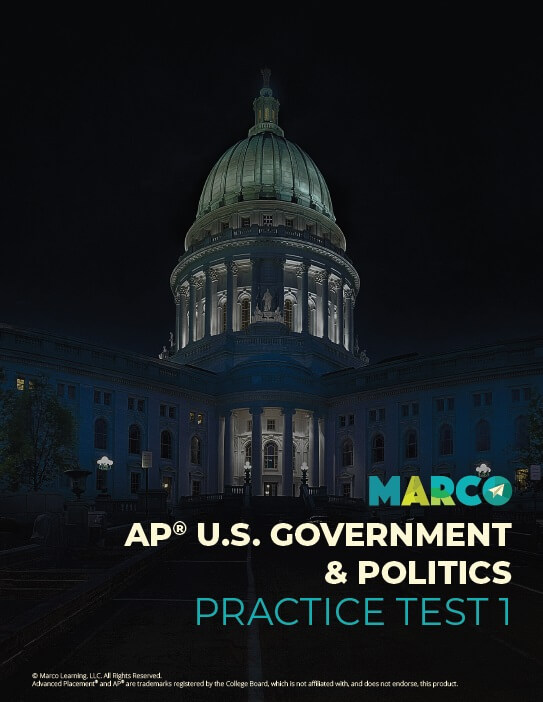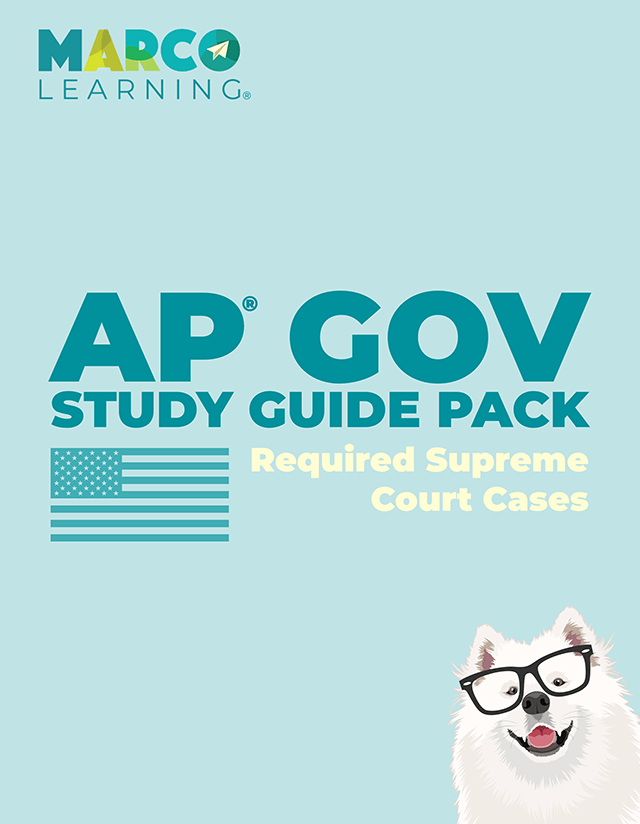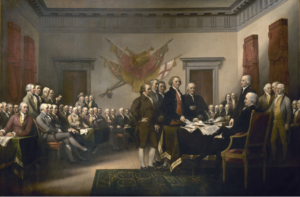


The United States Declaration of Independence was the official statement by the thirteen colonies in which they explained why they no longer considered themselves subject to British rule. The Declaration of Independence established the thirteen colonies as sovereign states that were officially at war with the Kingdom of Great Britain.

SUMMARY OF THE DECLARATION OF INDEPENDENCE
The Declaration of Independence was adopted in July 1776, almost a year after Great Britain and members of the thirteen colonies first began an armed conflict over the right of the British government to rule the territories. Many colonists were strongly influenced by Enlightenment political theories about social contracts, which argued that a government could only rule if it had the consent of the governed. The authors of the Declaration, Thomas Jefferson, John Adams, and Benjamin Franklin, all were well versed in Enlightenment philosophy.
From the point of view of the colonies, Great Britain did not have the consent of the colonists because they were not represented in Parliament. When Great Britain attempted to impose a series of taxes on the colonies to recoup expenses paid during the course of the French and Indian War, the colonists protested that the British government no longer had their consent to rule the colonies. The Declaration of Independence was their statement of grievances and their explanation as to why they no longer considered themselves under British rule.
The Declaration of Independence consists of five main parts: introduction, preamble, indictments, denunciations, and conclusion.
The introduction includes the strongest statement of Social Contract Theory by arguing that people have the right to rebel against governments that no longer adequately represent their interests. This political approach justifies the decision the colonists made to declare sovereignty from colonial rule.
The preamble, which includes the famous statement that “we hold that these truths to be self-evident, that all men are created equal, that they are endowed by their Creator with certain unalienable Rights,” established the idea that colonists felt that Great Britain directly violated what they saw as their natural rights.
The indictment section that follows includes a long list of specific ways that King George was seen as not treating the colonists fairly. The indictment section established an important precedent in American history by outlining the kinds of actions that would and not be acceptable from the government. Many of the actions that King George was accused of in the Declaration of Independence were later explicitly prohibited in the U.S. Constitution and the Bill of Rights.
The denunciation wraps up the indictments by concluding that King George’s offenses were so grievous as to merit rebellion. This section served as a clear statement that the U.S. people desired to be ruled by a limited government, not an expansive monarchy. The document finishes with a concluding statement that the colonies are now sovereign states that together form the United States of America.
ARTICLES OF CONFEDERATION KEY TERMS
Unalienable Rights The Declaration of Independence asserts that all men are endowed with “unalienable Rights, that among these are Life, Liberty and the pursuit of Happiness.” The political idea that people are born with natural rights— instead of being given them by a government—can be traced to the ideas of Enlightenment thinkers like John Locke and Thomas Hobbes. While this term is often spelled as “inalienable rights” in modern texts, the Declaration of Independence retains the eighteenth-century spelling.
Usurpations A usurpation is illegal infringement. Within the context of the Declaration of Independence, the former colonists used the term to accuse the Kingdom of Great Britain of wrongfully seizing authority that should rightfully belong to the people of the colonies.
Consent of the Governed According to the Declaration of Independence, all governments derive their authority from “the consent of the governed.” This reflects Enlightenment thinking that government and the people that are governed participate in a social contract. Each side has obligations toward the other. If a government oversteps its authority, the people can remove their consent to be governed.
Tom Richey Explains the Declaration of Independence
The best way to get better at something is by practicing.
That’s why it’s so important that you take practice tests to help you get better at the AP U.S. Government and Politics Exam. Only then can you expect to get a good score—and even improve your score.
 Help
Help